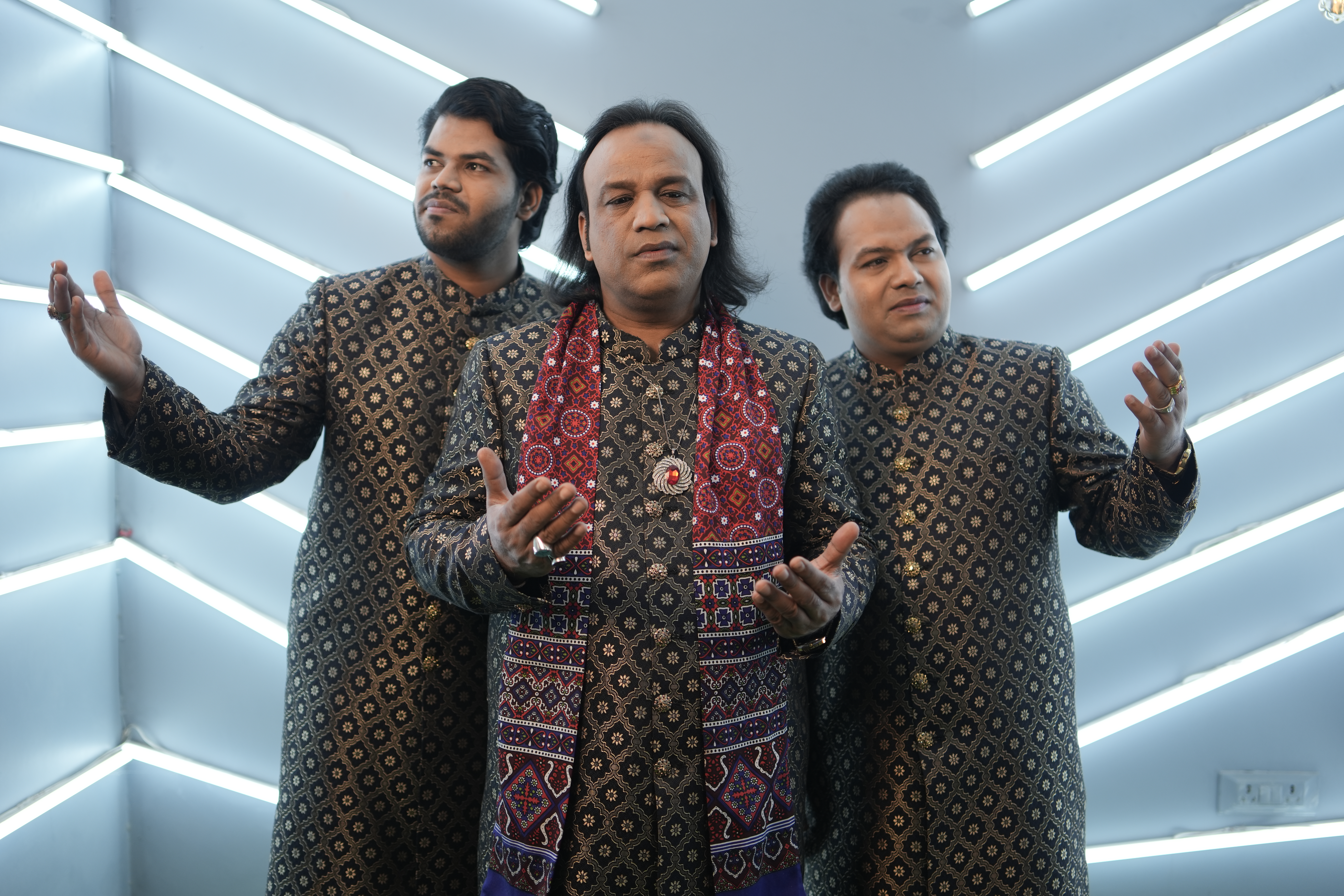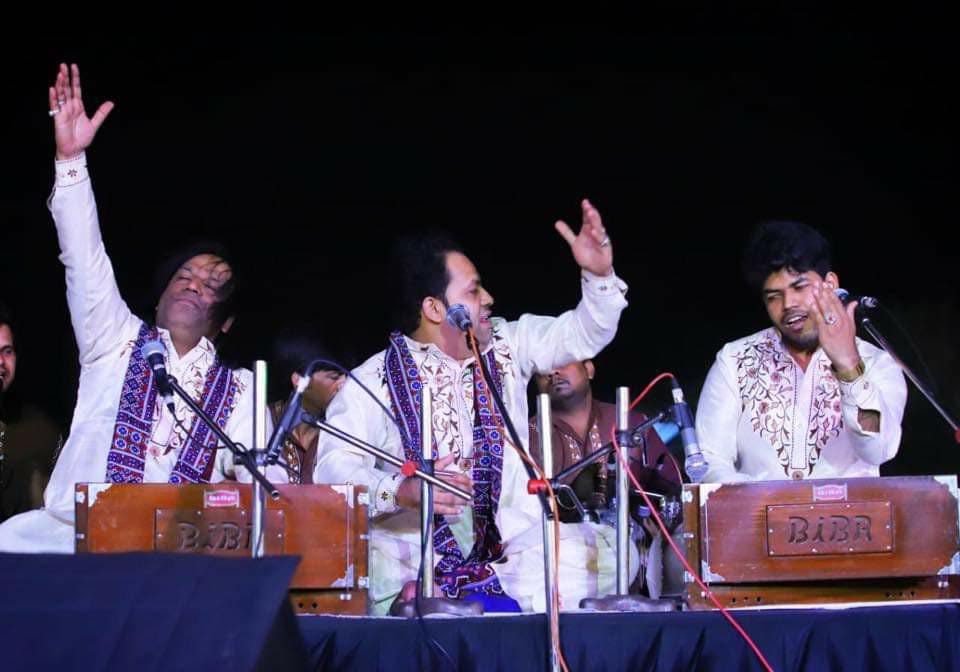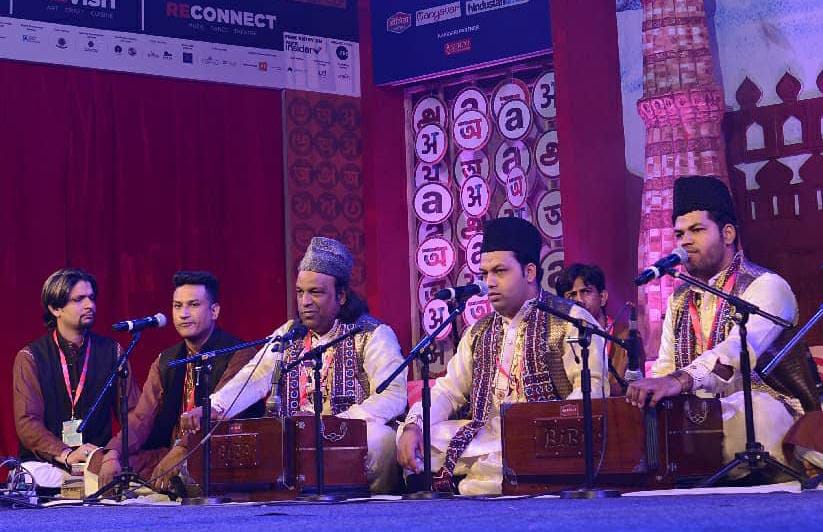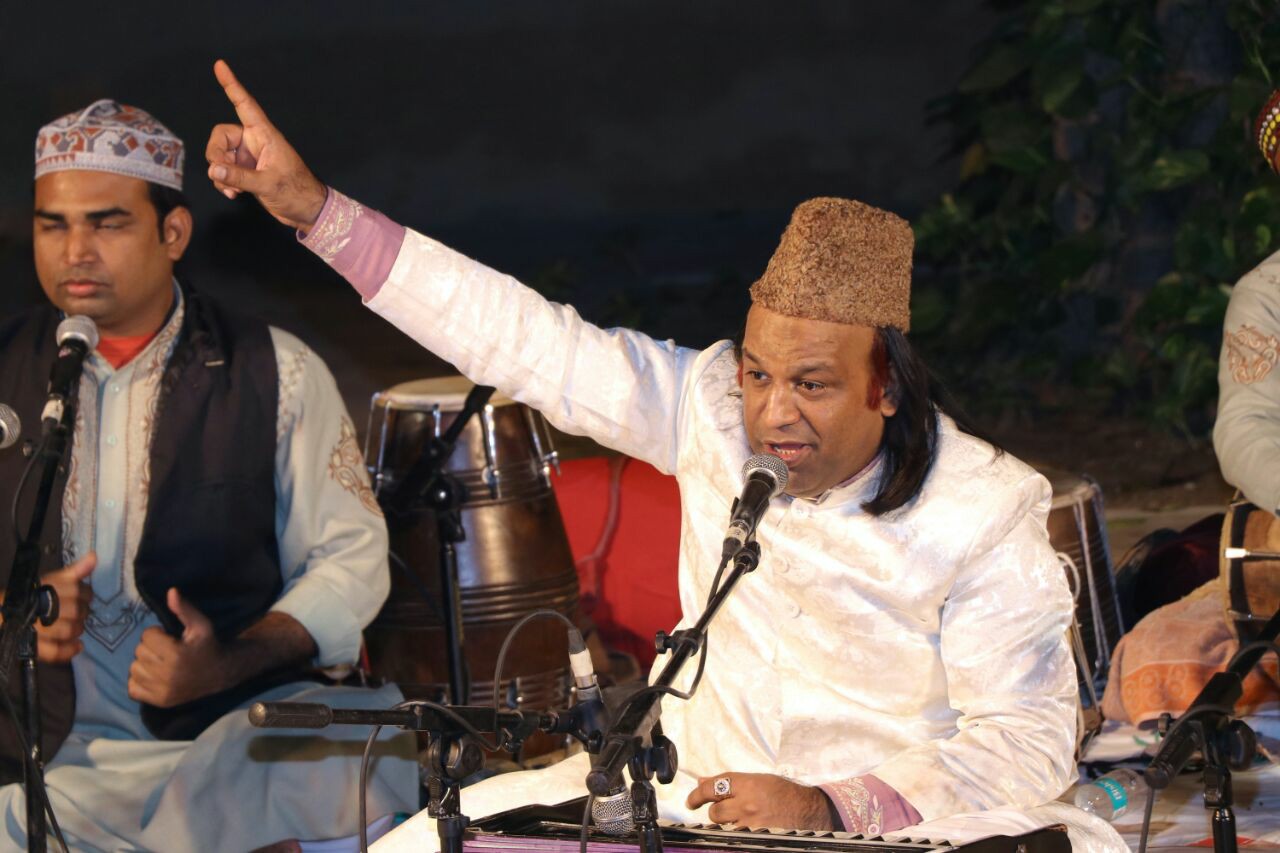“Qawwali makes your soul reach the divine being. According to a verse of Qawwali, the one who dies for the love of the Creator gets eternal life, so much so that his hand comes out of even the kafan (burial shroud) — as if he were singing even in death.” That is how Haji Mohammad Idris, one of the most famous Qawwali singers in the world, described his art, in an online interview with Connected to India, ahead of a performance in the ‘Tapestry of Sacred Music’ festival, at Esplanade – Theatres on the Bay, Singapore.
The Delhi-based lead qawwal of the Qawwali group Qutbi Brothers is being accompanied by his sons Arshad Qutbi and Adnan Qutbi at their performance on April 30 and May 1, at 8.30pm on both days, at Esplanade. Qawwali, with its 13th-century origins in the spiritual Sufi traditions of Islam in India, is a perfect fit at this festival of sacred music, which also includes Kirtan from Punjab, India; tantric songs of healing from Tibetan Buddhism; Byzantine chants from Greece; church organ music from France; aboriginal song and dance from Australia, and more.
This is the first top international music festival at which Qutbi Brothers is performing in the post-pandemic times. Speaking of how much the group is looking forward to the ‘Tapestry of Sacred Music’ performance, Haji Mohammad Idris said, “We always wanted to sing at this world-famous festival. We will do our best to give our best performance here, so that people appreciate our music and the festival’s reputation is enhanced.”
Outlining how they would usually perform for an international audience, Adnan said, “When we perform abroad, for example at this Singapore festival, people expect to be mesmerised by soulful music. We will try to present to them the real traditions of Qawwali, the fundamental principles — the treasures — of this art form.”
It began with Khwaja Moinuddin Chishti
Today’s great qawwals are the bearers of an 840-year-old legacy. Touching upon the history of this musical art in India, Idris said, “Qawwali began in Hindustan (India) with the Sufi saint Khwaja Moinuddin Chishti of Ajmer, also known as Garib Nawaz (benefactor of the poor). He was followed by his first disciple Khwaja Qutubuddin Bakhtiyar Kaki, who died singing Qawwali, during the festival Phool Waalon ki Sair (Procession of the Florists) in Delhi.” The singer also mentioned Amir Khusrau, the Sufi poet considered one of the greatest names associated with Qawwali.
Legend has it that Khwaja Qutubuddin Bakhtiyar Kaki became so absorbed in the verses of Qawwali that he passed into a state of trance, remained like that for three days, and then died on the fourth day.
Phool Waalon ki Sair is a festival held in the Mehrauli area of the Indian capital city of Delhi, and the events under the festival include the ceremonial offering of a floral chaadar (covering) at the dargah (Sufi shrine or tomb) of Khwaja Qutubuddin Bakhtiyar Kaki. This is also celebrated as a day of communal harmony, with Hindus fully participating in the ceremonial offering at the dargah alongside Muslims. The festival ends with a night-long performance of Qawwali.
Speaking to CtoI, Idris emphasised on this message of peace in Qawwali, like all truly spiritual music. “Qawwali is food for the soul for Sufis,” said the veteran singer. “It brings people together in communal harmony, spreads the message of love, and the message that God is one. Bhajan (music of the Hindu spiritual tradition) has the same message.”
We asked the world-renowned qawwal how he saw the portrayal of Qawwali in popular Indian culture, such as the chart-topper Qawwali song Kun Faya Kun, composed by the Oscar-winning music director AR Rahman for the 2011 film Rockstar, which had Bollywood A-lister Ranbir Kapoor in the lead. Indeed, there have been countless renditions of Qawwali in mainstream Hindi cinema.
Idris said, “Qawwali is progressing, be it through films or other mediums, but not everyone knows the traditional way of presenting it.” Adnan, a postgraduate student of music at Delhi University, added, “Every era brings some changes.”
Given that music evolves, the Qutbi Brothers group considers it a responsibility to keep Qawwali traditions alive while also catering to newer audiences. “Like the doctor who treats patients according to their conditions, we sing Qawwali in new ways and traditional ways,” said Idris with a laugh.
His own musical career began nearly five decades ago, in 1976, while sons Arshad and Adnan both joined their father in singing from the age of 4-5 years. “They got the same taalim (lessons) that we got from our elders,” said Idris, indicating how the family preserved the centuries-old Qawwali knowledge. “Mia Ramzan Khan Rangeele, Maste Khan Sahab… people sing their bandish even now. We have grown up learning from our elders.”
Adnan said, “We’ve been going to Qawwali performances since we were very young, and we’ve seen the atmosphere and the audience moods. It’s our objective to keep the family legacy, and take Qawwali to everyone, so that traditions are preserved.”
Global audience’s soul touched by Qawwali
Their music connects with people at the emotional level, as the rhythm and essence of Qawwali move everyone even if they do not understand the words. “We have performed at the ‘Namaste France’ cultural festival of India held in Paris — and even those who did not know our music or understood our words, their soul was touched by our music,” said Idris.
Adnan, being the youngest in the group and a university student, also has some innovative ideas on how to present the group’s music to an international audience. “Qawwali has Indian classical music, Arabic, Persian influences. This is the precious mixture that forms Qawwali, and it is mesmerising for the audience,” he said. “We perform before NRIs, diplomats, people from various countries, including people who are Arabic speakers, perhaps — so we try to present a range, including Hindi, Punjabi, Braj bhasha, Meerabai’s bhajan, so that people know what our culture is.”
About the group’s pre-performance feelings about the Esplanade show, Adnan said, “We’re happily anticipating a great audience and are super-excited about our performance.”
His father added with a flourish, “We will perform according to the audience — we will have great enjoyment performing, and people will enjoy listening. We want to make it a grand success, make it absolutely memorable. We want people to say ‘Bring this festival back after six months.’”






